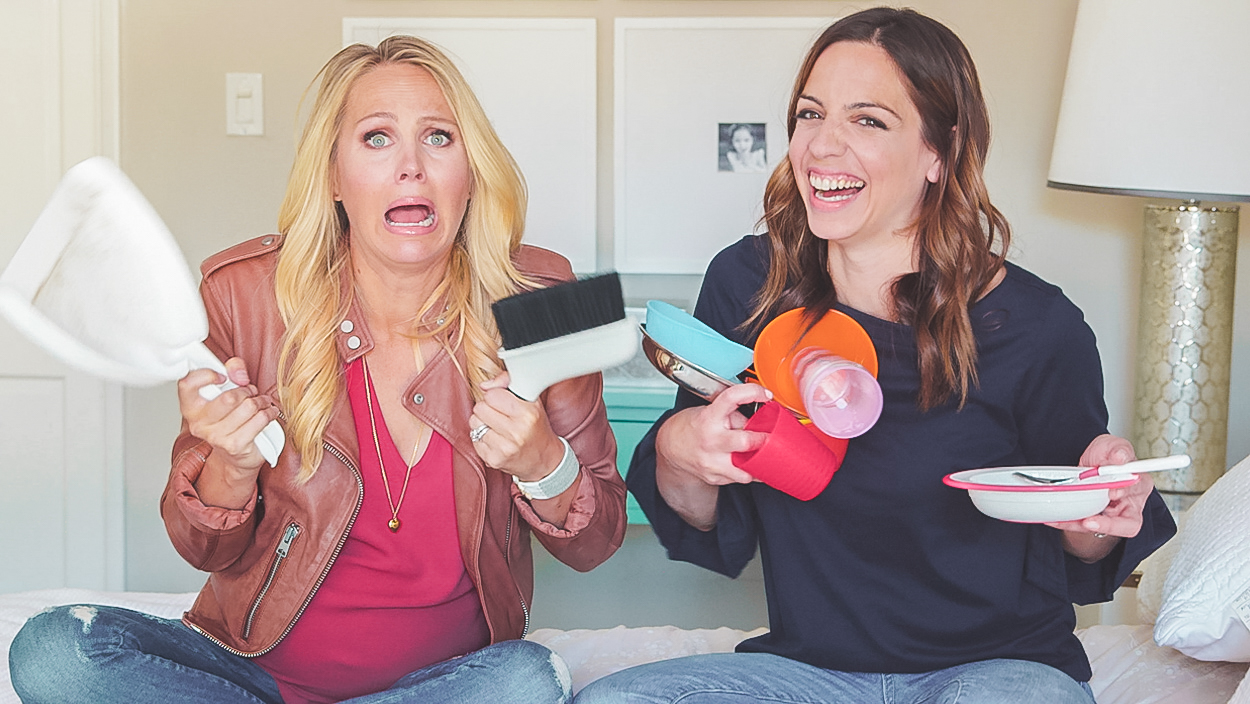

So you wish your kid would go just play without you? Of course you do. As parents, we need that — to work, for one thing, but also to be able to take a shower, have a hot cup of coffee or scroll social media for a few uninterrupted minutes. Like, to live.
But, more than that, independent play is a great way for children to learn life skills like independence, persistence, critical thinking, and problem-solving. So it’s not just about parents’ sanity; it’s also imperative that kids have ample solo playtime in order to work on developing these crucial life skills.
These days, many kids have become so accustomed to constant stimulation and don’t always get to develop the skill of playing alone. But there is a way, and it’s simpler than you might think.
Here are 9 ways to get your kids to play independently.
1) Create a “yes” space for play.
Make sure your home has some child-safe places where they can play safely without you having to hover. You can do this by creating areas where everything is a “yes!” This simply means making sure that you have a designated play area that is kid-friendly and where there is nothing they can get into that could cause serious harm. Related to that…
2) It’s OK to be out of sight, out of mind.
Try to create a play area in the house that is away from you–even if just out of sight. This will encourage your child to play independently. It’s hard for children to get into the flow of play if they are constantly feeling the watchful eyes of their parents or caregivers. A little distance also tends to help siblings figure things out easier than when you are in their presence. I chalk that up to them not having to compete for your attention since you aren’t right there!
3) Provide access to open-ended toys.
Not all toys are created equal. Toys that require batteries, light up, talk, dance, or “teach” something might seem more compelling at first glance (especially to kids!) but they’re generally pretty limiting in terms of play value. Toys that are open-ended (think boxes, wooden blocks, play dough, loose parts, and even Tupperware!) are going to provide much higher quality play. Open-ended toys have endless possibilities and encourage creativity, imagination, and critical thinking.
4) Let them be in charge.
Step back and follow your child’s lead. Keep in mind that every child is different and that even within the same family, children can (and often are) so different from one another in terms of their personalities and preferences. Observe what they naturally lean into. Do they love to push trucks around, throw toys, build, or play pretend? Learn a little about their play patterns and then try to support them with toys and activities that match where they are naturally.
5) Own fewer toys. Yes, we mean it.
You know the saying “less is more?” Well, it’s true for kids, too. Research shows that kids who are surrounded by fewer toys experience higher quality play and that they often engage in more creative and imaginative play than kids who are overwhelmed by toys. So don’t feel guilty about getting rid of toys that aren’t promoting play. You might also consider asking the enthusiastic gift-givers in your life to buy you less stuff.
6) Organize for your child, not for yourself.
Think about how you can organize your play space in a way that’s going to make sense for your specific child or children. Obviously anything that’s a choking hazard needs to be out of reach. But also think about your child’s access needs and capabilities. For example, use open bins and organize by type. Think about whether or not your child can reach something or if they would need a grownup’s help. Your goal is to be able to send them into their space and for them to NOT need you.
7) Schedule independent play, and practice it.
If your child isn’t used to playing alone, they may struggle at first. Don’t give up (or give in). Make sure you set aside time every day for them to practice solo play. You can set a timer–even if they can only go for five minutes to start! You can extend the amount of time based on their age and how they seem to do. If your child is tired, hungry, or overstimulated they may not be as likely to want to play alone, so keep timing in mind and don’t expect them to always be able to swing it.
8) Outdoor exploration has surprising benefits…
Did you know that gross motor activities — running, climbing, jumping, swinging — are not only healthy for all the obvious physical reasons, but they also help develop concentration? They do! So provide your child with plenty of opportunities to explore nature.
9) Let go of the guilt.
Easier said than done, I know. But hear me out. Having time to play alone benefits your child significantly. It’s going to help set them up for success–socially, emotionally, and academically. So don’t let the guilt creep in. You are working to raise a confident, self-motivated, independent human being, so repeat after me: “It’s not only okay for my kid to play alone, but it’s amazing for their own growth and development.” And it’s true.







